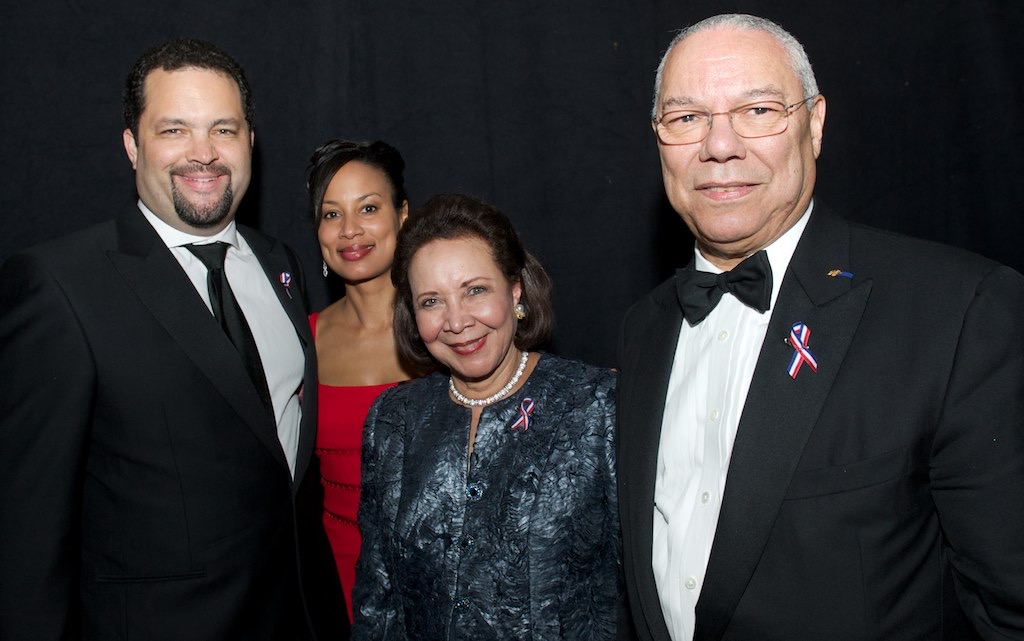
Colin Powell, a former secretary of state and retired four-star general, has died of COVID-19 related complications, his family said in a statement on Facebook.
Powell, 84, was born in New York City on April 5, 1937, in Harlem, a borough of Manhattan, to Jamaican immigrants, Maud Arial (née McKoy) and Luther Theophilus Powell. Hejoined the Army after graduating from the City University of New York. He died Monday at Walter Reed National Medical Center. His family said he was fully vaccinated against COVID-19.
“We have lost a remarkable and loving husband, father, grandfather and a great American,” Powell’s family said in its statement.
Mr. Powell was a trailblazer serving as the country’s first African American national security adviser, chairman of the Joint Chiefs of Staff and secretary of state. He grew up in the South Bronx and after graduating from City College of New York, he joined the Army through the Reserve Officer Training Corps program. From a young second lieutenant commissioned in the dawn of a newly desegregated Army, Mr. Powell served two decorated combat tours in Vietnam. He later was national security adviser to President Ronald Reagan at the end of the Cold War, helping negotiate arms treaties and an era of cooperation with the Soviet president, Mikhail Gorbachev.
As chairman of the Joint Chiefs, he was the architect of the invasion of Panama in 1989 and of the Persian Gulf war in 1991 that ousted Saddam Hussein from Kuwait but left him in power in Iraq. Along with then-Defense Secretary Dick Cheney, Mr. Powell reshaped the American Cold War military that stood ready at the Iron Curtain for half a century. In doing so, he stamped the Powell Doctrine on military operations — armed with clear political objectives and public support, use decisive and overwhelming force to defeat enemy forces.
Once retired, Mr. Powell, a lifelong independent while in uniform, was courted as a presidential contender by Republicans and Democrats, and became America’s most political general since Dwight D. Eisenhower. He wrote a best-selling memoir, “My American Journey,” and flirted with a run for the presidency before deciding in 1995 that campaigning for office wasn’t for him.
He returned to public service in 2001 as secretary of state to President George W. Bush, whose father Mr. Powell had served as chairman of the Joint Chiefs a decade earlier.
But in the Bush administration, Mr. Powell was the odd man out, fighting internally with Mr. Cheney, then vice president, and Defense Secretary Donald H. Rumsfeld for the ear of President Bush and foreign policy dominance.
He left at the end of Mr. Bush’s first term under the cloud of an ever-worsening war in Iraq, and growing questions about whether he could have and should have done more to object to it.
He kept a lower profile for the next few years, but with just over two weeks left in the 2008 presidential campaign, Mr. Powell, by then a declared Republican, gave a forceful endorsement to Senator Barack Obama, calling him a “transformational figure.”
Mr. Powell’s backing drew sharp criticism from conservative Republicans. But it eased the doubts among some independents, moderates and even some in his own party, and allayed some voters’ concerns about Mr. Obama’s lack of experience to be commander in chief.
In 2019, he argued the party needed to “get a grip” of itself and change course. He said last year he would vote for Joe Biden in the 2020 election.
Our thoughts and prayers go out to the Powell family.
Powell is survived by three children, two grandchildren and his wife, Alma.
